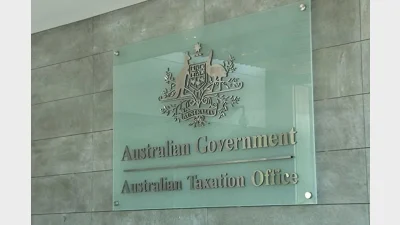(March-2003) Hanging on
Times are tough for global investment houses compared to the bountiful years of the recent bull market and the lucrative bonuses that followed. Culling, consolidation and cost cutting have been rife in the face of shrinking funds under management and dismal investment returns.
According to Lazard Asset Management senior executive Rob Prugue, the size and capacity of these managers’ operations grew as optimism swelled during the bull years.
“Revenue for many fund managers has dropped quite noticeably from the go-go years of the 1990s, and I think the difficulties that you’re witnessing now are that many firms had leveraged themselves on the expense side based on the assumption that revenues would continue to rise by 20 per cent plus for the foreseeable future,” he says.
“What’s occurred, of course, is that net revenues haven’t risen by 20 per cent over the past three years and in fact have fallen, or at best, remained the same.”
With revenue implicitly linked to funds under management, Deutsche Asset Management’s Asia Pacific chief investment officer Andrew Fay says weak investment markets have had an adverse impact on managers’ bottom lines, and those managers with narrow revenue streams are the ones worst hit.
“When your revenue line is determined by funds under management and equity markets are down as much as they are this year, then obviously your business will be affected,” he says.
“It’s managers in the mid-market area, with full research capabilities that are likely to be feeling the pressure at the moment… Typically, staff can account for anything up to 70 per cent of a fund manager’s costs and they’re still going to be there when markets and inflows are down.”
Allianz Dresdner Asset Management (ADAM) head of institutional business Michael Negline suggests, however, that the pressure from consultants to keep investors diversified will help to reduce the pressure on operating costs by limiting fund outflows.
“People are getting a little fed up with international equities after three years of negative returns in US dollar terms, which is the first time in the history of the MSCI. For a manager that only has global equities then it could become a problem, though consultants are still arguing the case that exposure to international equities is important for diversification,” he says.
Still, bottom line pressures are not the most important factor for Toby Harrop, the European fund manager at Platinum Asset Management, which is one of the very few groups to use Australia as its base for international equity investments.
“We tend to view this business with the emphasis on revenue being secondary to doing a good job in managing the client’s money. We believe if we look after that aspect of the business, the revenue will look after itself,” he says.
Rainmaker Information director of research Alex Dunnin says the “big conundrum” facing mid-sized managers, in particular, is whether they are big enough to focus on distribution or whether they should concentrate solely on manufacturing.
“If you look at some managers, while they may not have pulled out of the Australian market completely, they have certainly gone cold and have had to change strategy,” he says.
BNP Asset Management Australia executive director Rob Harrison agrees. “It seems that some fund managers are retreating from their Australian operations. A lot are winding down to skeletal structures while they cope with poor returns in their own markets,” he says.
One such manager is Harrison’s own firm, which sold its Australian equities operations to WHTM Asset Management back in September after deciding to focus on selling its suite of international products to clients.
Harrison says the group now sees itself as an “open architecture distribution platform”.
“We aim to produce internally but if we lack the internal resources to do so, we will look to obtain an economic interest in a party that is expert in the area,” he says.
For example, BNP struck an agreement with Fischer, Francis Trees and Watts after taking a 60 per cent equity stake in the firm, and signed a deal with Massachusetts Financial Services Company, although it is yet to take a stake in this company.
The French manager has also taken stakes in Geneva and Paris-based currency manager Overlay Asset Management and UK-based fund of hedge funds manager, Fauchier Partners. Products from the latter will be marketed to Australian clients later in the year, says Harrison.
Mercer Investment Consulting’s co-head of manager research, Greg Liddell, draws on the fact that the MSCI World Ex-Australia Index fell by 27.4 per cent over the year to end December 2002 to highlight the plight of managers.
“Against [this index], most global equity managers added around 2 per cent in value for the year. However, it is a characteristic of the funds management industry that in periods of high returns, such as we experienced in 1998 and 1999, investors focus on the ability of managers to outperform but when returns are negative, the focus tends to be very much on the absolute level of performance,” he notes.
“In the down market environment, managers have lost funds under management with the fall in asset values exceeding positive cash inflows. We would estimate the larger global equity fund managers have lost, on average, around 10 per cent in funds under management … Some managers have experienced negative cash flows as well as falling asset values, and consequently their funds under management have fallen considerably more than 10 per cent.”
Towers Perrin director of asset consulting services Paul Laband says international managers are suffering the most, particularly those with a large exposure to the US.
“The US is some 50 per cent off its high, and this is a bear market that has gone on for more than two years, so there’s bound to be some significant detrimental effect on bottom line revenues. Therefore, the reality is that international managers are suffering to a greater extent compared to domestic managers.”
Interestingly, Prugue notes that because many fund managers have had to tighten their belts and reassess the business reasons for having certain divisions and offering certain products, the market is now flooded with highly qualified individuals.
“We’ve found that right now you can hire some very qualified and professional staff. But the good news is that you no longer have to pay excessively for them. Right now it’s a buyer’s market. We are astounded and overwhelmed by, not just the number of CVs, but the names on those CVs of people reassessing their positions,” he notes.
According to Perennial Investments executive chairman Mike Crivelli, many of the problems facing the funds management industry globally revolve around people wanting to get profitable quickly.
The pressures faced by listed managers is fuelling a culture of short-sighted investing.
“In terms of hard times, I think a lot of the hard time reaction stems from those managers that are listed. The horizons are so short now that you have shareholders and analysts on your back constantly. Fund managers under pressure to perform in turn puts pressure on corporates to perform over the short-term and is something that’s not necessarily healthy for long term investing,” says Crivelli.
“If you buy something that’s profitable right away, then I think it’s a question of how much you pay for it. Principal in the US paid $2 billion for BT and they paid way too much. So $2 billion was sitting on their balance sheet and not paying its way — that’s the BT story. I think if they’d paid the right price for it then there wouldn’t have been the shareholder pressure to sell,” he says.
PIMCO and ADAM are two international fund managers that are listed by default, as they are both owned by the listed global insurance giant Allianz. However, both claim to be fortunate enough to have a parent which allows them to focus on managing the funds they have under management without too much interference.
“Allianz has been very keen to let us look after the business and to let the experts in asset management do their job. I think if we weren’t doing a good job then there would be pressure,” says Negline.
“There hasn’t been any drastic cost cutting or anything like that at the front end. Obviously there’s the structural performance based stuff where you want to weed out any analysts or portfolio managers that aren’t making the grade.”
This sentiment is echoed by PIMCO senior vice-president Kumar Palghat who says his group has also been meeting its targets and has therefore experienced little in the way of orders from Allianz. PIMCO has been 70 per cent owned by Allianz since May 2000 and has four portfolio managers in Australia managing domestic and global fixed interest and global credit.
Negline says despite the lack of interference, there is a clear path of communication detailing where the group as a whole is going.
“With ADAM we are very clear in where we are heading, and globally there is a lot of communication and interaction between the various parties within the group so we don’t see ourselves as a satellite company. Often if you’re operating in isolation and senior management don’t know what’s going on then the temptation is there for them to interfere,” he says.
Fay says the industry will be in a much leaner and healthier position going forward because many fund managers have addressed their cost structures, albeit out of necessity.
“The cost base in the industry has been looked at and we are much closer to the button now than we were back in March 2000, when there was over-capacity in the industry,” he says.
Liddell, however, believes that there are still some changes to be expected this year.
“We have already seen some consolidation in response [to the pressures], with a number of managers cutting staff, principally in administration and marketing support roles. Therefore, it will be interesting to watch what happens over the next six months,” he says.
Regardless of where the hammer falls, BT Financial Group head of asset accumulation Rob Coombe says the desire to invest overseas will always remain. “There’s no doubt that the appetite for international equities is not as strong as it was going back three years, but we’ve been around long enough to know that these things wax and wane, and that when investor appetites are at their leanest, it’s probably the best time to invest.”
Recommended for you
The responsible investment body is warning that a one-size-fits-all ESG framework mirroring those in the UK and the EU could do more harm than good.
Australian super funds are monitoring the US closely as President Donald Trump increasingly intervenes in corporate policy, moves that are reverberating through global markets and prompting reassessments of portfolio risk.
Industry fund HESTA has filed an appeal against an ATO decision on tax offsets from franking credits, with the Australian Retirement Trust set to file a similar claim soon.
The latest superannuation performance test results have shown improvements, but four in 10 trustee-directed products continue to exhibit “significant investment underperformance”, warns APRA.











